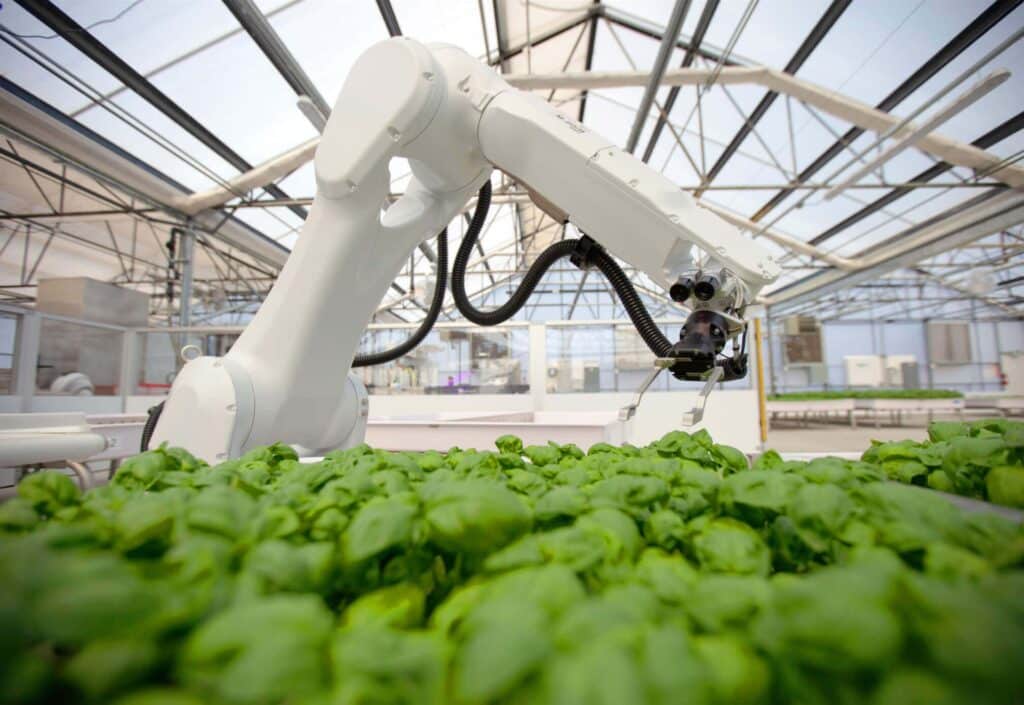Would you like to get notifications from Christian?
It's no secret that conventional farming is bad for the environment. But what if there was a way to use robots and artificial intelligence to make agriculture more sustainable? That's the goal of Iron Ox, a startup based in Northern California. Their goal is to reduce the negative impacts of conventional farming, and they're doing it with the help of some pretty cool technology!
How are they doing it? Iron Ox is using robots to help with various tasks on the farm, from planting and harvesting to sorting and packaging produce. They're also using artificial intelligence to track data and optimize growing conditions. This allows them to use fewer resources while still producing high-quality fruits and vegetables.
When it comes to the sustainability of our food system, the conventional agriculture model is woefully inadequate. It takes an exorbitant amount of resources and produces huge amounts of waste, not to mention all the pollution and greenhouse gasses that result from this largely unsustainable form of farming. But luckily, there's a new startup on the scene that is working to revolutionize the model, using robot technology and artificial intelligence to enhance efficiency and reduce waste in a truly sustainable way.
It's called Iron Ox, and it was born out of a realization that conventional American ag could no longer be allowed to continue as is. Utilizing robot farmhands and AI-powered software tools, Iron Ox helps farmers produce higher quality crops while using fewer natural resources. And perhaps best of all, they're able to do it all without wasting any precious fruits or vegetables along the way! With more sustainable options like this available, we can finally start moving away from our current environmentally destructive agricultural system toward one that truly supports our planet's long-term health. So let's join forces and support startups like Iron Ox - they hold the key to a more sustainable food future for us all.

If Iron Ox is successful, it could mean big things for the sustainability of our food supply. It's an exciting time for those who are working to make agriculture more sustainable!
What do you think? Do you think this type of technology can help make agriculture more sustainable? Let us know in the comments!
Author: Christian Kromme
For Disruptive Inspiration Daily
Christian is a futurist and trendwatcher who speaks about the impact of exponential technologies like AI on organizations, people, and talents. Christian tailors his presentations to your audience's specific industries and needs.



Our world is changing at an exponential rate! A big tidal wave of digital transformation and disruption is coming at us fast. Many organizations see this wave as a threat and experience stress, but there are also organizations that just see this wave as an opportunity.

Imagine sitting with just 10-15 fellow executives at a premier location, gaining clarity on the impact of AI on your industry while enjoying an exquisite dining experience. These are not just meetings—they are transformative moments that will shape the future of your organization



In the future, 3D printing and generative design will allow for products to be designed in a more decentralized manner, and production will take place closer to the customer and fully on-demand. 3D printing technology will also allow for more customization and personalization of products.


The agricultural industry is ripe for disruption. Robotics, AI, and IoT are all technologies that have the potential to radically transform the way we grow food. In combination with vertical farming, these technologies could increase the efficiency and quality of agricultural products.

A human-centered society is one that puts people first and where technology is used to unite and empower people. It is a society that values biological life and dignity above all else. It is a society that recognizes the importance of human relationships and works to strengthen them. In a human-centered society, all members of the community are valued and treated with respect.


The future of healthcare is here. New technologies like AI, IoT, big data, and smart sensors make it possible to become the CEO of your own health. Imagine that your phone can listen to your voice and AI algorithms can detect small nuances in the tone of your voice that indicate specific diseases.
